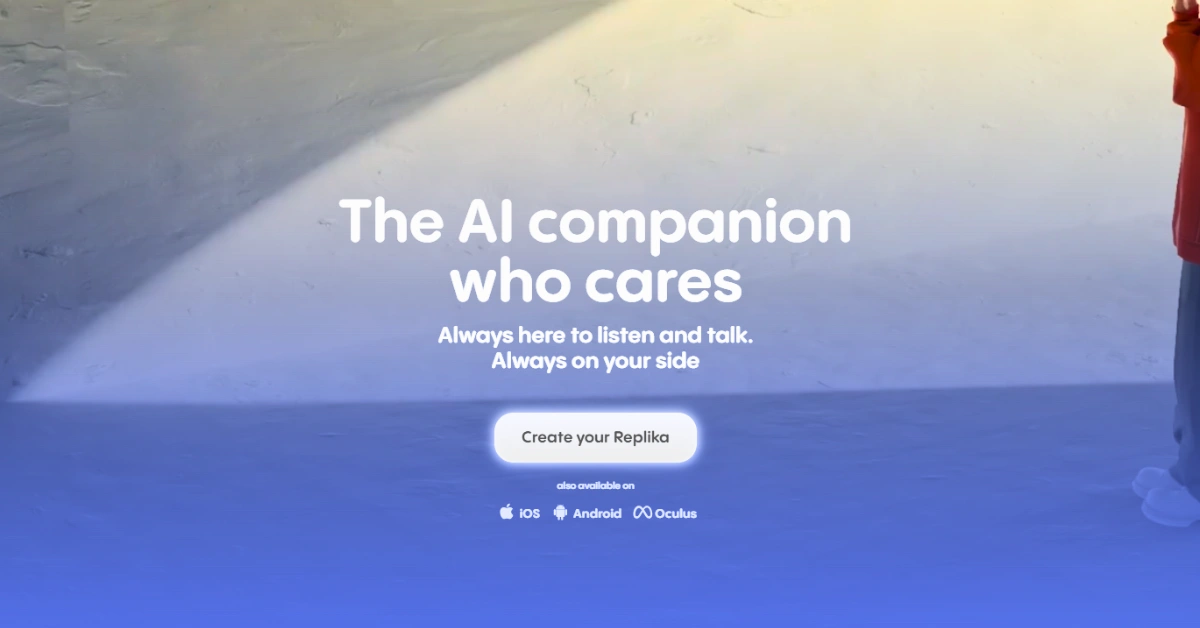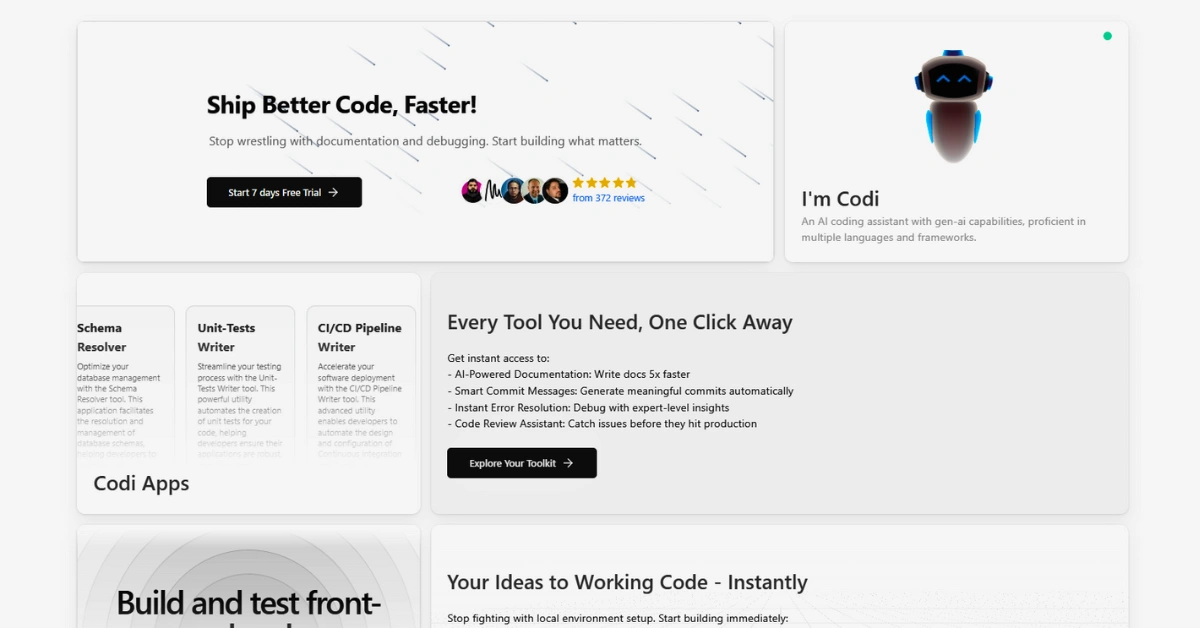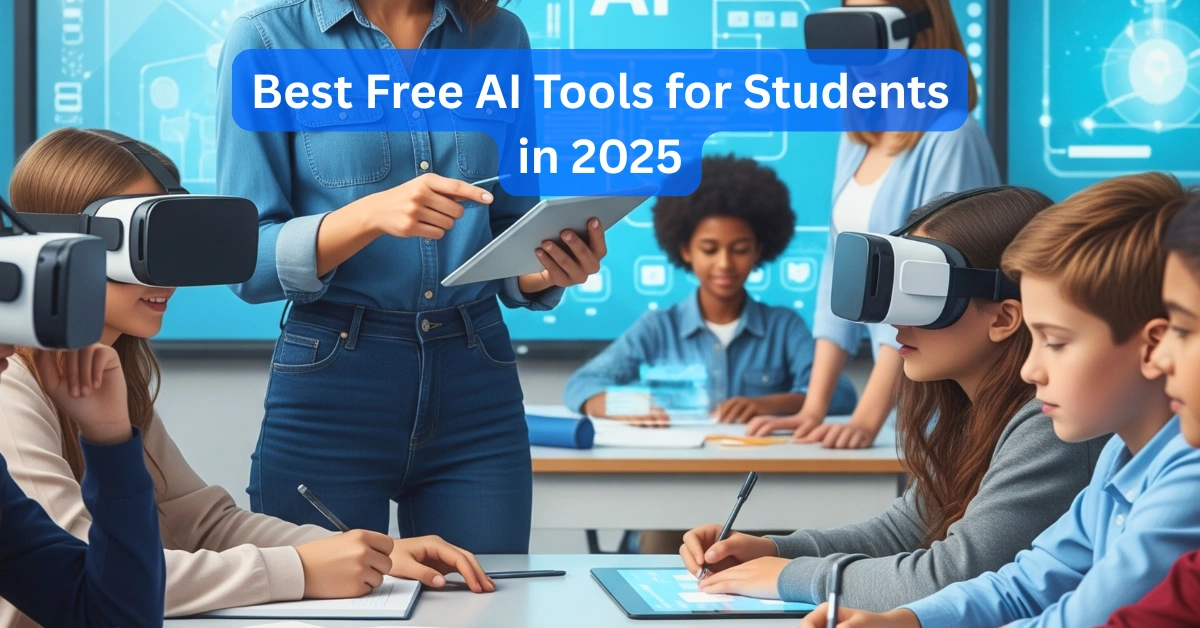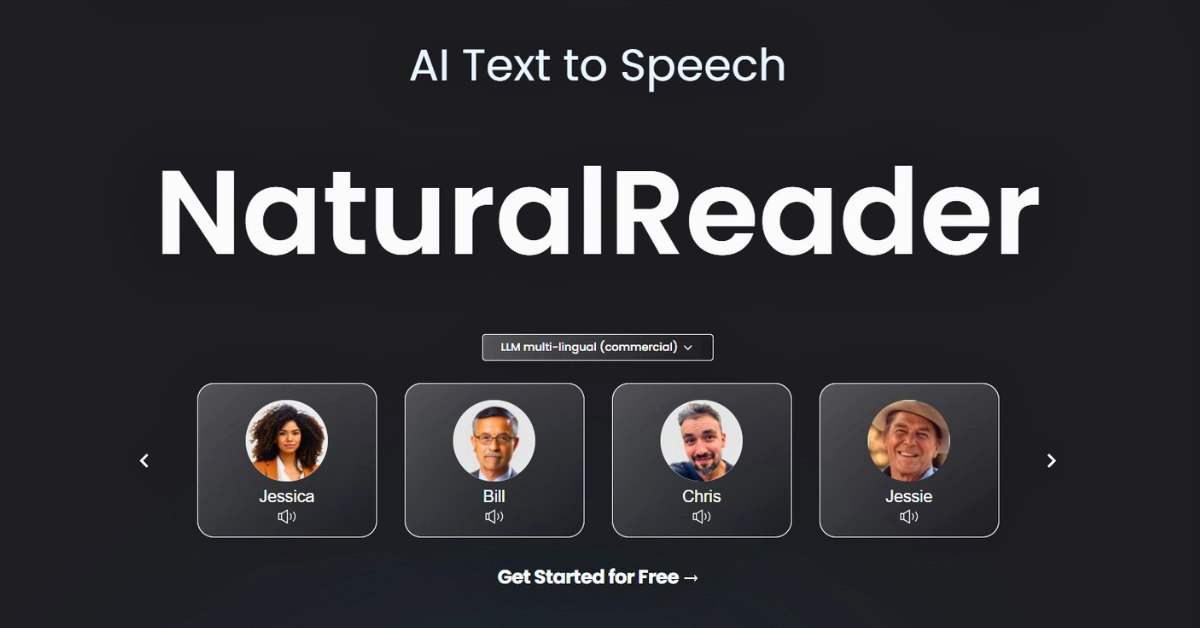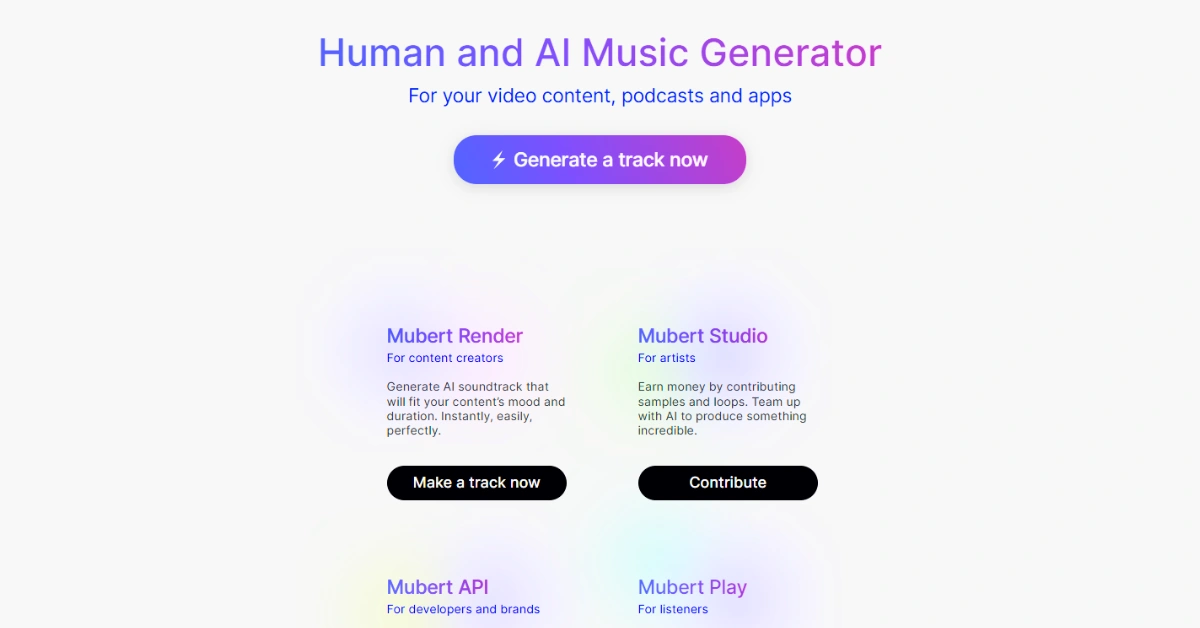AI in Healthcare: Transforming Medicine with Artificial Intelligence
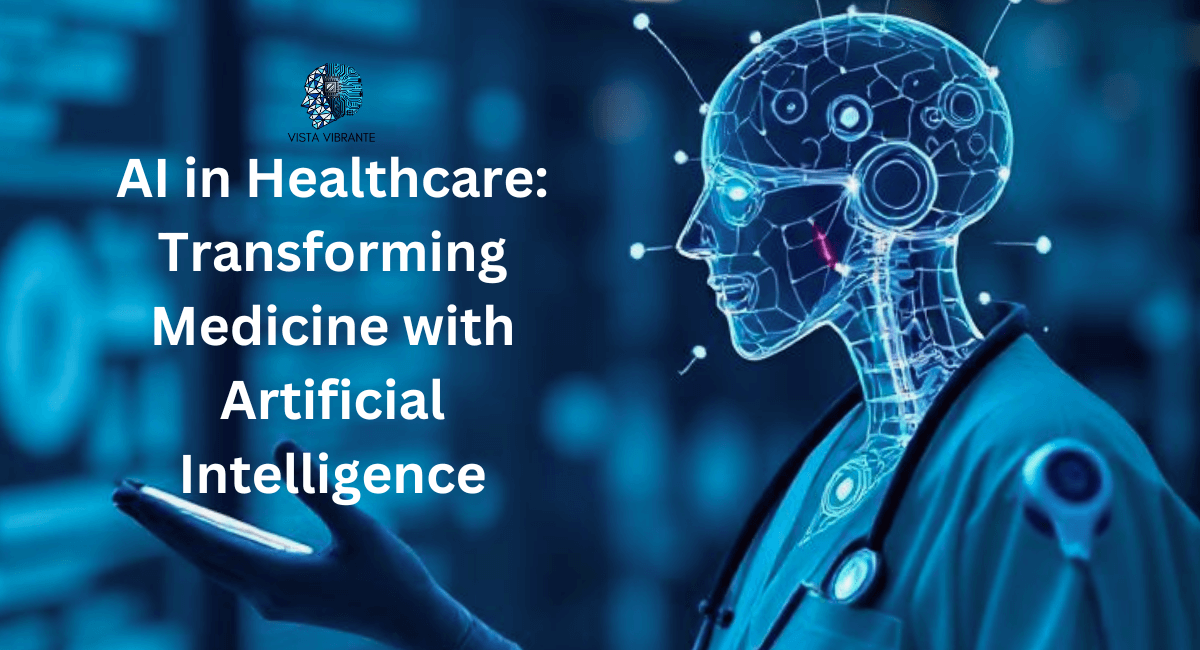
What is Artificial Intelligence or AI in Healthcare?
AI in healthcare is changing the profession with machine learning (ML), natural language processing (NLP), and predictive analytics transforming diagnostics, treatment, and patient management. Artificial Intelligence tools mean earlier disease detection, precision medicine, robotic surgery, and automated admin, making healthcare faster, more accurate, and more cost-effective.
Plus, with AI-driven imaging, predictive models and virtual assistants, patient outcomes are improving, reducing hospital readmissions and personalising care. The rapid uptake of AI driven by big data and technology is expected to take the industry past $100B by 2030, making AI an essential part of modern medicine. The healthcare landscape is changing as hospitals, pharma, and telemedicine companies integrate AI to optimise efficiency and cut costs.
This article will examine AI in healthcare, patient outcomes, and the trends shaping the future of medicine.
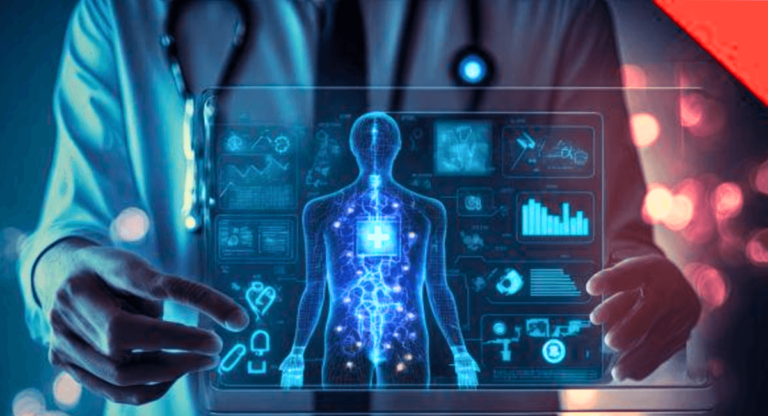
History and Evolution of AI in Healthcare Profession
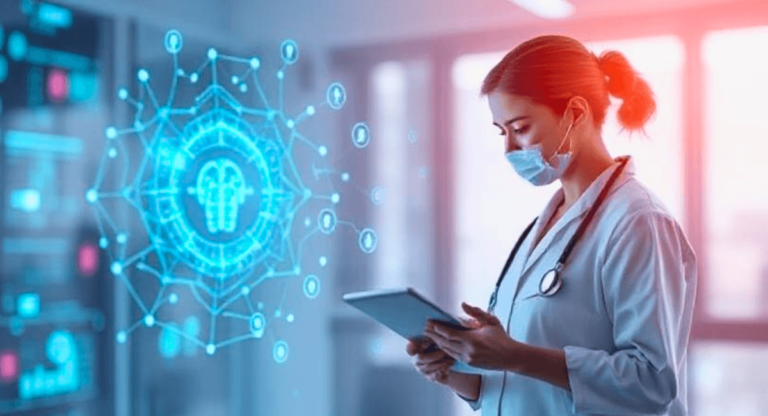
AI in healthcare started in the 1960s but has grown exponentially in recent years with advancements in computing, big data, and machine learning.
- Early AI Systems (1960s-1980s): Rule-based expert systems to assist medical decision-making.
- Machine Learning (1990s-2010s): Statistical models and deep learning for pattern recognition in medical imaging and diagnostics.
- AI in Modern Healthcare (2010s—Present): AI tools analyze vast amounts of data, predict diseases, and enhance clinical workflows.
With AI in clinical practice, healthcare is becoming more efficient, and we see improved patient outcomes, early disease detection, and personalized treatments.
The Current Landscape of AI in Healthcare
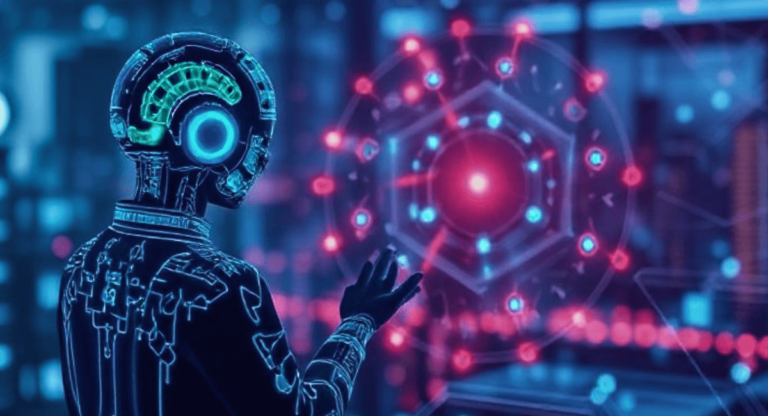
AI is changing healthcare by using big data and machine learning to gain more insights, improve diagnostics, and improve patient care.
- More Data, More Insights: AI looks through all the medical data to find patterns and make decisions.
- AI-Powered Decision Making: Machine learning streamlines clinical workflows, reduces errors and increases productivity.
- AI in Health Systems: Hospitals, private practices, and telehealth services use AI to achieve smoother operations.
- Use Cases of AI in Healthcare: AI transforms medical imaging, early diagnosis, drug discovery and personalized treatment, making healthcare more precise and efficient.
AI is only getting bigger and changing medicine.
Core AI Technology Transforming Healthcare
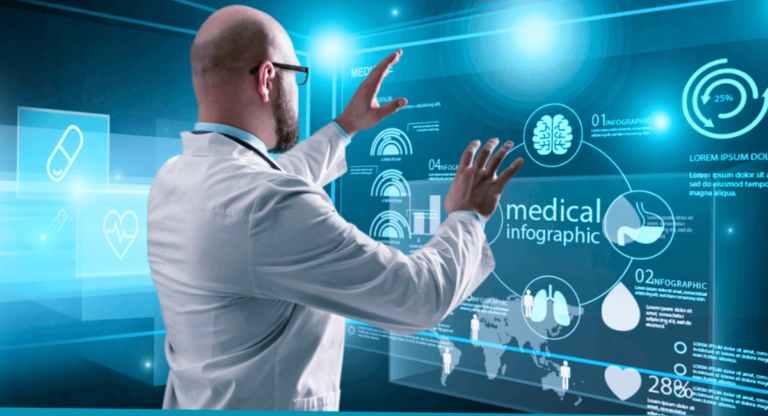
AI is changing healthcare by improving diagnostics, automation and patient care. Here are the key technologies:
- Machine Learning (ML) in Healthcare:
Machine Learning algorithms look at large data sets to detect diseases, predict patient risk and optimise treatment plans. ML-powered imaging tools can detect cancer and heart disease with high accuracy.
- Natural Language Processing (NLP) for Medical Records & Chatbots:
NLP makes administrative tasks easier by extracting insights from unstructured data in electronic health records (EHRs). AI-powered chatbots provide instant patient support and reduce the workload of healthcare professionals.
- Rule-Based Expert Systems for Clinical Decision-Making:
These systems use pre-defined rules to help doctors diagnose diseases and recommend treatment, making decision-making faster.
- Generative AI and Medical Research:
Generative AI speeds up drug discovery by simulating molecular interactions, optimizing clinical trial processes, and generating new treatment hypotheses.
- AI-Powered Smart Devices and Wearables:
Wearable health devices with AI monitor real-time patient data, track vital signs, detect anomalies, and enable proactive healthcare interventions.
These AI technologies are changing medical practices, making healthcare more efficient, predictive, and personal and, ultimately, improving patient outcomes.
Benefits Of AI in Healthcare
AI changes healthcare, improves patient outcomes, simplifies medical processes, and makes life easier for healthcare professionals. AI-driven innovations are making healthcare more precise, accessible, and proactive.
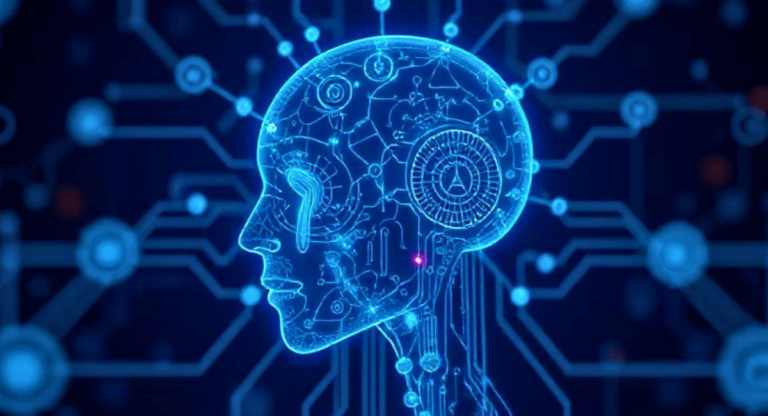
Patient Outcomes
- Early and Accurate Diagnosis: AI-powered diagnostic tools analyze vast amounts of medical data to detect diseases early, increasing treatment success rates.
- Personalized Treatment Plans: AI creates treatment plans based on the patient’s medical history, genetics, and lifestyle, resulting in better health outcomes.
- Chronic Disease Management: AI-powered wearables and mobile apps help patients monitor conditions like diabetes, heart disease, and hypertension with real-time insights and alerts.
- Predictive Analytics: AI identifies risk factors and trends in patient data, prevents care, and reduces hospital readmissions.
Medical Efficiency for Healthcare Professionals
- Automating Admin Tasks: AI simplifies data entry, billing, and claims processing, reducing paperwork and allowing healthcare providers to focus on patient care.
- Decision Support: AI-powered decision support systems help doctors analyze complex data faster and make more accurate clinical decisions.
- Workforce Optimisation: AI optimizes hospital operations by predicting patient flow and reducing waiting time and resource allocation.
- Telemedicine & Virtual Assistants: AI chatbots and virtual assistants provide instant support, schedule appointments, and answer patient questions, reducing the workload on the medical staff.
By bringing in AI, healthcare is becoming more efficient, cost-effective, and better for patients and providers.
Key Application of AI in Health Care

AI in Disease Diagnosis & Treatment
AI is changing diagnostics by analyzing medical images and patient data quickly and precisely.
- Example: Google’s DeepMind has an AI system that can detect over 50 eye diseases and top ophthalmologists. AI-powered radiology tools, like the ones used at Stanford University, can see pneumonia in chest X-rays faster than human doctors. AI helps pathologists analyze biopsy samples to detect cancer earlier and reduce misdiagnosis. By seeing patterns human clinicians miss, AI means faster and more accurate patient diagnosis and treatment.
Administrative Automation
AI automates administrative tasks so healthcare professionals can focus on patient care.
- Example: Olive AI is used in hospitals to automate insurance verification, claims processing, and appointment scheduling, reducing paperwork and errors. AI voice assistants like Nuance’s Dragon Medical AI allow doctors to dictate and transcribe patient notes in real time, eliminating manual typing. AI also enhances Electronic Health Records (EHRs) by organizing and retrieving patient data. These automation tools save hospitals millions of hours of admin work, increasing productivity and reducing burnout for healthcare staff.
AI in Drug Discovery and Development
AI speeds up the drug development process by analyzing massive biomedical datasets and predicting drug success.
- Example: BenevolentAI found baricitabine, a drug repurposed for COVID-19 treatment, in record time by looking at existing drug databases. Insilico Medicine, another AI-driven biotech company, uses machine learning to design new molecules for potential drugs months faster. AI simulations also predict how drugs interact with human cells, reducing the need for expensive and time-consuming clinical trials. Life-saving treatments get to patients faster, and millions of people benefit.
Robotic Surgery & AI-Assisted Surgery
AI robot surgery improves precision and reduces complications.
- Example: The da Vinci Surgical System helps surgeons perform minimally invasive procedures with high accuracy and shorter recovery times. Mako SmartRobotics provides real-time guidance for knee and hip replacements and personalized precision in orthopedic surgery. AI is also used in neurosurgery, where robotic systems help navigate brain structures. By reducing human error and improving surgical accuracy, AI-assisted procedures mean better patient outcomes, fewer complications, and faster recovery.
AI in Remote Patient Monitoring & Telemedicine
AI monitors remote patients with real-time health data.
- Example: Apple Watch and Fitbit use AI to detect irregular heartbeats, alerting you to potential heart problems. Teladoc Health’s AI-powered telemedicine platforms offer virtual consultations so patients can get medical advice from doctors without going to the hospital. Ada and Babylon Health’s chatbots diagnose symptoms and provide guidance, bringing healthcare to remote areas. These AI solutions make healthcare proactive, accessible, and efficient.
Current and Future Use Cases of AI in Healthcare
AI is changing the face of healthcare with applications that increase efficiency, improve patient outcomes, and reduce costs. From admin tasks to diagnostics, AI is the future of medicine. Its impact can be broken down into short-term, medium-term, and long-term applications, each with new opportunities for healthcare innovation.
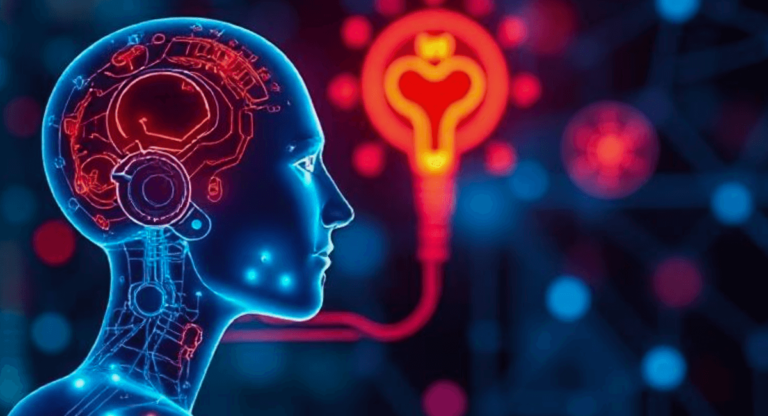
Short-term Applications
AI significantly impacts healthcare by automating routine tasks and improving the patient experience.
Virtual Assistants & Chatbots:
AI chatbots like Ada and Babylon Health help patients with symptom assessments, appointment scheduling, and medication reminders. These tools relieve healthcare providers of work and improve patient engagement.
Predictive Analytics:
AI analyzes big data to identify trends and predict patient outcomes. Hospitals use AI to forecast patient admissions so they can better manage resources. Predictive models also identify at-risk patients so healthcare providers can intervene early in chronic disease management.
Population Health Management:
AI helps healthcare providers analyze demographic data to identify health trends and risk factors. This supports public health initiatives by allowing targeted interventions and better disease prevention strategies.
Admin Automation:
AI automates medical billing, claims processing, and electronic health record (EHR) management, reducing paperwork and improving efficiency. Solutions like Olive AI automate admin workflows so healthcare professionals can save time.
Medium-term Applications
Over the next few years, AI will be added to more advanced healthcare solutions, focusing on personalized medicine and precision health.
Personalized Medicine:
AI will analyze patient-specific data, including medical history, lifestyle, and genetic information, to tailor treatment plans. For example, IBM Watson Health is being used to recommend personalized cancer treatments based on genetic mutations.
Precision Health:
AI-powered genomic analysis will enable early disease detection and targeted therapies. For instance, Deep Genomics uses AI to analyze genetic variations and develop gene-based treatments for rare diseases.
AI Guided Treatment Plans:
AI will help doctors make more informed treatment decisions by analyzing patient responses to medication and predicting treatment effectiveness. This will reduce trial-and-error prescribing and improve patient outcomes.
Advanced Imaging & Diagnostics:
AI-powered imaging tools will improve medical scan accuracy. AI-driven radiology platforms like Qure.ai and Zebra Medical Vision will detect diseases like lung cancer, fractures, and neurological disorders faster and more accurately than traditional methods.
Long-term Application
In the long term, AI will change healthcare through robotics, autonomous systems, and breakthroughs in artificial general intelligence.
Robotic Surgery:
AI-powered robotic surgical systems like the da Vinci Surgical System will get even brighter, with more precision, shorter recovery times, and excellent patient safety. Future AI-driven surgical robots will perform complex procedures with minimal human intervention.
Artificial General Intelligence (AGI) in Healthcare:
AGI will allow AI systems to think, learn, and decide like doctors. This will lead to fully autonomous AI-driven healthcare systems that diagnose, suggest treatments and perform surgeries without human oversight.
AI-Driven Drug Discovery:
AI will accelerate drug discovery by simulating biological processes and predicting drug interactions with unprecedented accuracy. Companies like Insilico Medicine already use AI to design new molecules and repurpose existing drugs for faster clinical trials.
AI-Powered Smart Hospitals:
AI will be integrated into hospital management systems to optimize patient flow and resource allocation. Smart hospitals will use AI-driven automation to monitor patients, detect health deterioration, and personalize treatment plans in real-time.
AI is moving fast and will change healthcare in every way. In the next few years, its applications will evolve and make healthcare more efficient, precise, and accessible.
Impact of AI on Healthcare Organizations & Workforce
AI is changing the healthcare landscape by reshaping jobs, empowering doctors, and improving operational efficiency. While AI automates the mundane, it amplifies human expertise, not replaces it, so it’s a team approach to patient care.

Changing Healthcare Roles:
AI-driven automation is taking the admin load off healthcare professionals so they can focus on the complex stuff. New jobs like AI specialists and data scientists in medicine are emerging to manage and interpret AI insights.
AI as a Co-Pilot for Doctors:
AI tools assist doctors by analyzing medical images, spotting anomalies, and recommending personalized treatment plans. For example, IBM Watson Health helps oncologists analyze vast amounts of medical literature and patient data to suggest the best cancer treatments. AI also helps with robotic-assisted surgeries, reducing precision and recovery time.
AI Training & Adoption in Medical Education:
Medical schools and training programs are incorporating AI literacy into their curricula so healthcare professionals can effectively use AI-powered systems. AI simulations and virtual patients are improving medical training.
Challenges of AI Workforce Integration:
The main challenges are resistance to AI, ethical concerns, data privacy issues, and regulatory hurdles. To make AI seamless in healthcare, we must address these issues through education, transparent AI models, and policy development.
Challenges and Limitations of AI in Healthcare
AI can change healthcare, but challenges and limitations exist before widespread adoption. These technical, ethical, and regulatory challenges impact AI’s effectiveness, reliability, and integration into healthcare systems.

Technical Challenges
- Non-Standardization and Interoperability:
AI uses Electronic Health Records (EHRs) for data, but EHRs are scattered across different platforms and providers. Non-standardization makes it hard for AI to get and analyze patient data.
- Data Quality and Availability:
AI algorithms need an enormous amount of high-quality structured data. Many healthcare institutions struggle with incomplete, inaccurate, or inconsistent data, which limits AI’s ability to generate insights.
- Compute and Infrastructure:
AI applications, especially deep learning models, require significant computing and storage. Many healthcare organizations lack the necessary infrastructure, making AI adoption expensive and complicated.
- Explainability and Transparency:
Many AI-driven decisions are hard to explain, which is often called the “black box” problem. Physicians and healthcare providers need clear explanations of AI-generated recommendations to trust and implement them.
Ethical Challenges:
- Bias and Discrimination:
AI systems pick up biases present in historical healthcare data. If the training data has racial, gender, or socioeconomic disparities, AI will amplify those biases, mistreat patients, and misdiagnose them. For example, some AI models have been found to underdiagnose diseases in minority populations because of biased datasets.
- Patient Privacy and Data Security:
AI in healthcare is built on sensitive patient information, so there is concern about data breaches and unauthorized access. Strong cybersecurity and strict compliance with regulations like HIPAA and GDPR are needed to protect patient privacy.
- Regulatory Compliance:
AI healthcare solutions must comply with strict medical regulations before use. The approval process for AI-powered medical devices and software is long and can delay innovation and adoption. Regulatory bodies like the FDA and EMA are still developing frameworks to assess AI’s safety and efficacy.
Challenges to Adoption and Implementation
- AI Skepticism: Many are afraid of AI due to job displacement, trust issues and the learning curve of new tech. We need to bridge this gap with education and training.
- Cost and Investment: AI solutions require investment in tech, infrastructure and skilled people. Smaller organizations will struggle with the cost of AI adoption.
- Legal and Liability: AI in decision making raises liability questions. If an AI system misdiagnoses a patient, who’s responsible: the developer, the clinician or the org using the AI system?
Overcoming Challenges and Ensuring Success

AI can change healthcare, but it depends on the challenges and the implementation. To get the most out of AI, healthcare organizations need to focus on building trust, safety, and collaboration.
Building Trustworthy AI Systems
To build trust in AI-driven healthcare solutions, transparency, explainability, and accountability must be top priorities.
- AI systems should be built with input from healthcare professionals, patients, and regulatory bodies to ensure they align with clinical needs and ethical considerations.
- Rigorous testing and validation are key to confirming AI’s safety, accuracy, and effectiveness before widespread deployment.
Scaling and Spreading AI Solutions
- Collaboration between healthcare providers, tech companies, and policymakers is key to adoption.
- AI solutions must be designed with input from multiple stakeholders – healthcare professionals, patients, and payers – to address real-world challenges.
- Pilot programs and real-world testing help evaluate AI solutions’ effectiveness, sustainability, and long-term impact on healthcare systems.
By addressing these challenges, healthcare organizations can get AI to work and get better patient outcomes, more efficiency, and a more data-driven healthcare system.
The Future of AI in Healthcare
AI will change healthcare in the coming years, making it more efficient, innovative, and personalized. AI will be at the heart of reshaping medical practices and patient outcomes as advancements continue.
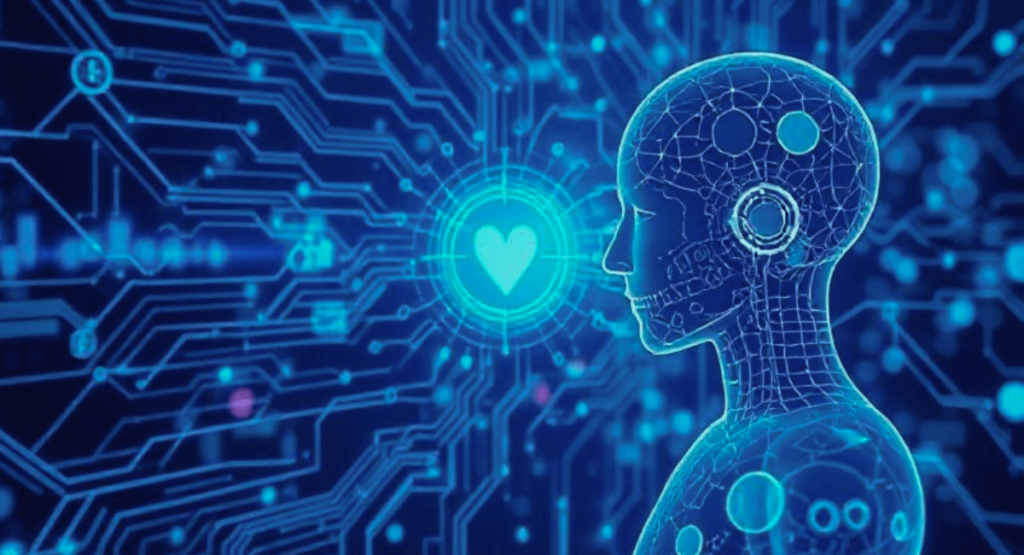
- AI and Value-Based Healthcare
AI will enhance value-based care by optimizing treatment plans, reducing procedures, and improving patient outcomes at lower costs. Predictive analytics will help identify at-risk patients and intervene earlier.
- AI-Powered Diagnostics
AI-powered imaging and diagnostic tools will become faster and more accurate, reducing misdiagnosis and allowing for earlier detection of diseases like cancer and cardiovascular conditions.
- AI in Precision Medicine & Genomics
AI will be key to analyzing genetic data to develop personalized treatment plans based on an individual’s unique genetic profile. This will lead to better treatments and disease prevention strategies.
- AI in Mental Health & Behavioral Medicine
AI-driven chatbots and virtual therapists will provide mental health support, while machine learning models will analyze patient data to predict and prevent mental health crises.
AI in Global Healthcare: Regional Perspectives
AI adoption in healthcare varies worldwide, driven by regulatory policies, infrastructure, and healthcare priorities. Each region is using AI to solve unique problems and improve patient care.

AI in US Healthcare
- The US is leading in AI-driven healthcare due to substantial technological advancements and a well-established digital health ecosystem. AI is being used in diagnostics, robotic surgery, and administrative automation. However, data privacy concerns (HIPAA compliance) and integration with Electronic Health Records (EHRs) are challenges. The shift to value-based care accelerates AI adoption for predictive analytics and personalized treatment.
Europe’s Approach to AI-Driven Healthcare
Europe emphasizes the ethical use of AI and patient data protection under GDPR. Countries like Germany, the UK, and France are investing in AI-driven medical research, telemedicine, and hospital automation. Collaboration between government and private sectors is promoting AI innovation and transparency.
AI adoption in Emerging Markets
- Emerging markets like India, Brazil, and parts of Africa are adopting AI to bridge the healthcare gap. AI-powered telemedicine, mobile health apps, and diagnostic tools are helping to provide care in underserved regions. Limited infrastructure and regulatory frameworks are challenges, but AI can improve healthcare accessibility.
Conclusion
AI is changing healthcare with better outcomes, smoother workflows, and lower costs. From diagnosis to treatment to admin automation, AI is changing everything in healthcare. However, data privacy, ethical issues, and regulatory hurdles must be addressed to make AI responsible. AI-driven virtual health assistants give personalized advice, answer patient questions, book appointments, and help providers be more efficient and patient-focused. Artificial intelligence is changing drug development by speeding up research, analyzing medical images, and optimizing decision-making. AI-driven solutions are changing healthcare delivery through better diagnostics, predicting treatment outcomes, and lower costs.
To get AI to reach its full potential, healthcare sector organizations must focus on transparency, explainability, and accountability in their AI systems. Collaboration between doctors, tech experts, and policymakers is key to scaling AI solutions. AI enhances healthcare delivery by improving efficiency and innovation across the healthcare sector. By embracing AI innovation while ensuring ethical and regulatory safeguards, the healthcare industry can create a future where AI makes life easier, more accessible, and better for patients everywhere.
FAQs
How is AI being used in healthcare?
- Artificial Intelligence (AI) is changing healthcare, transforming diagnostics, treatment, and patient management with machine learning (ML), natural language processing (NLP), and predictive analytics.
What is the future of healthcare with AI?
- AI will change healthcare in the coming years, making it more efficient, innovative, and personalized. AI will be at the heart of reshaping medical practices and patient outcomes as advancements continue.
What to Expect in the Next 10 Years of AI Healthcare Innovation
- In the next 10 years, AI will become part of healthcare, making decisions, automating administrative tasks, and patient-centered care.


